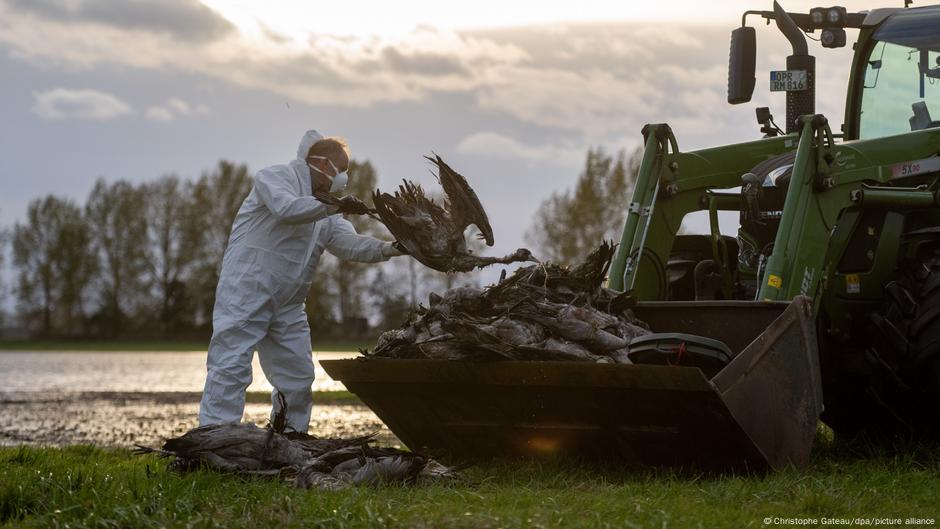Over half a million hens, ducks, geese and turkeys have been culled in since the start of September as a virulent strain of bird flu sweeps the country.
According to the Friedrich Loeffler Institute (FLI), the German government agency responsible for monitoring animal pestilence, there have been 30 registered outbreaks in poultry batteries and another 73 among wild birds.
“And we’re expecting more,” a spokesperson told the dpa news agency, explaining that another 23 suspected cases are currently being investigated.
According to the FLI, outbreaks of bird flu usually emerge at the start of November at the height of the migratory season, meaning that the current pestilence could yet to reach its peak.
In the south-western state of , local authorities said new suspected cases were reaching them on a daily basis and spoke of an “unusual dynamic.”
Bird flu in Germany: where are the most affected areas?
The worst affected areas are the northern and eastern states of (20 cases), (19), (19) and (14). But cases have also been confirmed in the southern state of (eight) and the western state of (five).
Cranes have reportedly been particularly badly affected, with emergency services in northern Brandenburg, just north of , having to dispose of thousands of infected, dead animals left strewn across fields.
According to the FLI, the outbreaks are being caused by the highly infectious H5N-1 strain of the HPAIV influenza virus – commonly known as bird flu.
Is bird flu dangerous for humans?
In high doses, the virus is theoretically transmissible to humans, but the , Germany’s federal agency for disease control and prevention, isn’t aware of any such cases.
Rather, the effect on humans could be more likely to be felt in the pocket, with Bavarian Poultry Union chairman Robert Schmack warning of a potential 40% increase in the price of eggs and a smaller choice of poultry products in supermarkets.
The president of the Central German Poultry Union, Hans-Peter Goldknick, however, disagrees, telling public broadcaster ZDF that he is “not expecting price explosions in the short term,” nor in the build-up to Christmas, not least because most geese in Germany are imported from Hungary and Poland.
In order to help prevent the spread of the virus, the FLI recommends avoiding contact with dead birds and not wearing dirty boots near pens holding vulnerable animals.
Meanwhile, in the German parliament, the , a spokeswoman for the opposition said that the current outbreak of bird flu had revealed the “vulnerability of factory farming,” where packed pens provide optimal conditions for the virus to spread.
Edited by: Louis Oelofse
The post Germany: 500,000 birds culled as flu spreads appeared first on Deutsche Welle.




